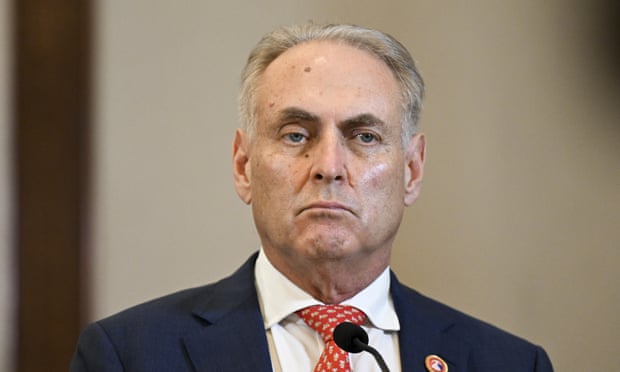Extract from The Guardian
Special minister of state signals ambitious suite of electoral reforms to be rolled out before next election.

Sun 10 Jul 2022 06.00 AEST
Last modified on Sun 10 Jul 2022 06.01 AESTThe special minister of state said that Labor will be “putting the case” to an inquiry into the 2022 election “as to why those things should be done”, signalling their likely inclusion in a government bill to be presented ahead of the next election.
Labor and the Greens supported truth in political advertising and electoral spending caps in the joint standing committee on electoral matters (JSCEM) inquiry that examined the 2019 election, but neither featured as concrete commitments in Labor’s 2022 election campaign.
Farrell confirmed the party will aim to legislate the reforms, along with tackling malapportionment, whereby some votes in the House of Representatives and Senate count for more than others due to the voter’s state or territory of residence.
Anthony Albanese has twice stressed the importance of the principle of one-vote one-value since being elected prime minister.
In June, Guardian Australia reported the Australian Capital Territory’s chief minister, Andrew Barr, called for the addition of two further senators in the territories as well as more mainland MPs to help fix malapportionment – a position also supported by Dave Smith, a fellow Labor MP.
Asked if he supports spending caps, truth in political advertising and reforms to improve one-vote one-value, Farrell said: “Yes – all of the things that were in our party policy we will be producing legislation [to enact them] at some point.”
The comments indicate the reforms could be bundled together with other commitments, such as reducing the political donation disclosure threshold to $1,000.
Farrell said the ordinary process would be followed to “progress changes”, first reestablishing the electoral matters committee when parliament returns then conducting an inquiry into the 2022 election.
“You present arguments to them, and they come down with a recommendation. We’ll be putting our case to JSCEM as to why those things should be done.”
“It would’ve been a terrible outcome had we not been able to stop it,” Farrell said.
“Other parties, the teals and the independents will have issues. We’ve got our set of policies that we took to the last election. We’ll be seeking to present all of them to the committee.”
Asked how he proposed to improve one-vote one-value, Farrell said the issue would be raised with the committee to “see what solutions they come up with”.
Labor’s national secretary, Paul Erickson, said at the National Press Club in June that truth in political advertising laws was one of a “number of issues relating to electoral law that will give rise to very interesting debate”.
Erickson said Labor always made a submission to the JSCEM inquiry, but he would not make policy in his answers to questions following his campaign director’s address.
“But after the last election, Jay Weatherill and Craig Emerson’s review … pointed to some of the debates that arose over the course of the 2019 campaign and encouraged Labor to support truth in political advertising laws.”
In 2019, Labor suffered from a social media-driven scare campaign falsely claiming it planned to introduce a death tax.
While some of its own campaign messaging, including the claims the Coalition would privatise Medicare in 2016 and expand the cashless debit card in 2022, has sailed close to the wind, Labor denies misleading voters.
Kate Thwaites, Labor MP and JSCEM member in the last parliament, said that the 2022 election showed the debate about spending caps is “still relevant”. At both the 2019 and 2022 polls, Labor was concerned about the United Australia Party’s tens of millions in spending.
On truth in advertising, Thwaites noted JSCEM had proposed a separate inquiry to consider which agency should be tasked with judging truth, as the Australian Electoral Commission and competition watchdog have said they wouldn’t want the role. She suggested the reform might win bipartisan support.
“There is a perception that a lot of information received during campaigns isn’t truthful.”
The federal director of the Liberal party, Andrew Hirst, signalled the Coalition will likely oppose spending caps.
“The Liberal party supports the existing funding and financial disclosure regime, which has been in place under successive governments,” he said.
“The Liberal party does not support changes to these arrangements that would unnecessarily add to the already considerable administrative and compliance burdens placed on political parties.”
Kylea Tink, independent MP for North Sydney, said she supports “greater transparency” on money’s influence in politics, describing spending caps as “a good idea”.
“The tricky part in this will be coming to what that number needs to look like.”
Running as an independent is “one of the hardest things I’ve ever done”, she said, and “without the backing of a party the need to be able to invest to build name recognition and the agenda I was running on was absolutely essential”.
She said the bigger issue was real-time disclosure, and truth in political advertising adding that was “definitely something we should pursue”.
No comments:
Post a Comment